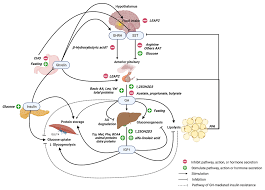
Hygetropin: Unraveling the Synthetic Human Growth Hormone
Hygetropin is a synthetic human growth hormone (HGH) that has garnered significant attention for its potential benefits and applications in various medical and non-medical contexts. In this comprehensive article, we will explore what Hygetropin is, its mechanism of action, its medical and non-medical uses, potential benefits, risks, and the legal considerations surrounding its use.
Understanding Hygetropin
Hygetropin, a brand name for recombinant human growth hormone (rHGH), is manufactured by HygeneBiopharm, a pharmaceutical company based in China. Recombinant HGH refers to synthetic HGH produced through genetic engineering techniques, wherein the human growth hormone gene is inserted into bacteria or yeast cells to produce the hormone in large quantities. This synthetic form of HGH is structurally identical to naturally occurring HGH produced by the human body.
Medical Uses of Hygetropin
Hygetropin is primarily employed for therapeutic purposes, primarily focusing on the following areas:
Growth Hormone Deficiency: Children and adolescents with growth hormone deficiency often receive Hygetropin to stimulate their growth and reach a more typical height for their age.
Other Medical Conditions: It is prescribed for the treatment of conditions like Turner syndrome, Prader-Willi syndrome, and chronic kidney disease, where growth hormone deficiency plays a pivotal role in the pathology of these disorders.
Non-Medical Uses and Potential Benefits
Hygetropin has also gained notoriety outside the realm of medicine, primarily in the fitness and anti-aging communities. Some potential non-medical benefits and applications of Hygetropin include:
Muscle Growth and Fat Reduction: Athletes, bodybuilders, and fitness enthusiasts often use HGH to enhance muscle growth and promote fat loss. This has led to its misuse in the context of performance enhancement, though its efficacy and safety in this context are still debated.
Anti-Aging Effects: HGH has been lauded for its potential anti-aging properties. Advocates claim it can improve skin quality, reduce the appearance of wrinkles, and boost vitality.
Bone Health: HGH can improve bone density, which may reduce the risk of fractures, particularly in older individuals.
Metabolism and Energy Boost: Hygetropin can stimulate metabolism, potentially increasing energy levels and aiding in weight management.
Enhanced Athletic Performance: Some athletes employ HGH in an attempt to gain a competitive edge. However, it’s essential to note that such use is often considered unethical and illegal in sports, and organizations like the World Anti-Doping Agency (WADA) have stringent regulations against its use.
Potential Risks and Side Effects
The use of Hygetropin, especially in non-medical contexts, carries potential risks and side effects, including:
Muscle and Joint Pain: Users may experience discomfort or pain in their muscles and joints.
Carpal Tunnel Syndrome: This condition can lead to numbness and tingling in the hands and fingers.
Swelling: Some individuals may experience edema, causing swelling in the extremities.
Acromegaly: Prolonged and excessive use of HGH can result in acromegaly, a condition characterized by abnormal bone and tissue growth, particularly in the face, hands, and feet.
Blood Sugar Levels: HGH can affect insulin sensitivity, potentially leading to changes in blood sugar levels.
Increased Risk of Diseases: There is ongoing concern that long-term use of HGH may heighten the risk of certain diseases, including cancer.
Usage and Dosage
The usage of Hygetropin should always be guided by a qualified healthcare professional. The appropriate dosage and duration of treatment vary based on an individual’s specific medical condition and goals. Typically, it is administered through subcutaneous injections, and strict adherence to prescribed dosages and administration guidelines is crucial to maximize benefits and minimize risks.
Legal and Ethical Considerations
It is imperative to recognize the legal and ethical aspects associated with Hygetropin. In many countries, the non-medical use of HGH, including Hygetropin, is considered unethical and illegal. Athletes engaging in unauthorized HGH use may face severe consequences, including disqualification from competitions and damage to their reputation.
Furthermore, to ensure safety and efficacy, obtaining Hygetropin from reputable and legitimate sources is of paramount importance, as counterfeit or impure products may pose significant health risks.
In Conclusion
Hygetropin is a synthetic human growth hormone with applications spanning both medical and non-medical contexts. While it offers several potential benefits, its use must be closely supervised by healthcare professionals, and it should align with legal and ethical standards. Decisions regarding Hygetropin use should be based on a thorough assessment of potential benefits and risks, with guidance from healthcare providers to ensure safe and responsible use.







